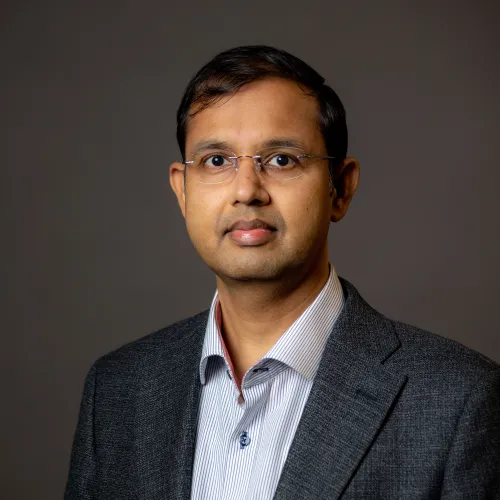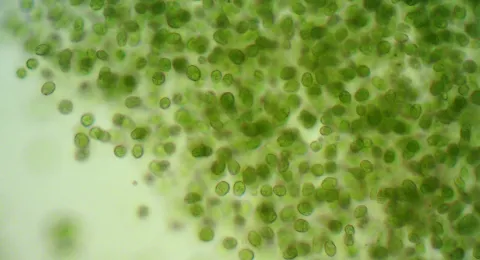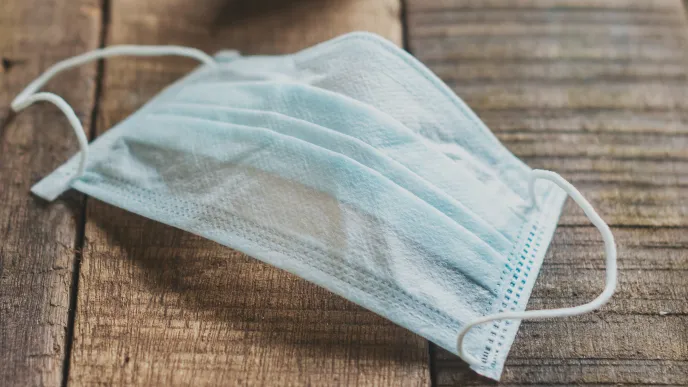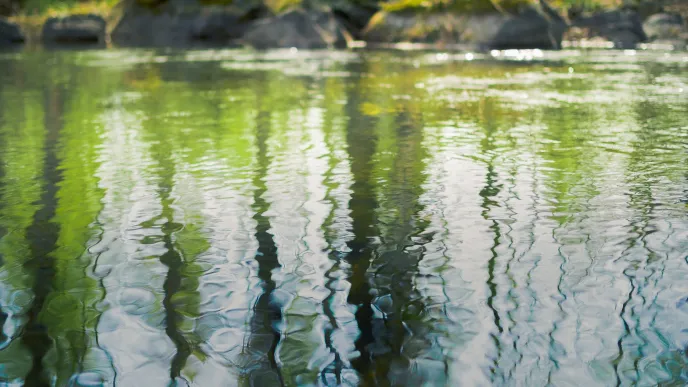The right to clean drinking water and sanitation were added to human rights by the United Nations General Assembly in 2010. According to a report by the WHO and UNICEF, over two billion people still lived without access to clean water in 2019.
Amit Bhatnagar, LUT's Professor of Water Treatment and one of the most cited researchers in the world (Highly Cited Researchers, Web of Science), is determined to be part of the solution in changing that statistic.
Growing up on the banks of the Ganges River canal in India, Bhatnagar witnessed the problems of insufficient infrastructure and rapid industrialization. In his childhood, drinking water was available through household taps, but over the course of 20–30 years, the natural water resources became severely polluted in many areas.
"Some parts of India have frequently suffered from poor water quality and sanitation practices, especially during the summers. As a result of the rapid industrialization, water supply became a luxury also in residential areas where water had been available," says Bhatnagar.
Witnessing the damages – water shortages experienced by individuals, communities and entire sectors of the society – motivated him to pursue a career in science.
"In countries like India, where agriculture is the largest source of livelihood, the importance of water is huge. As a researcher I aim to contribute towards solving the water crisis on the global level."
After completing his PhD in chemistry with a focus on water treatment, Bhatnagar has continued his research on water-related topics in different parts of the world: Switzerland, South Korea, Germany, Portugal, Sweden and Finland.
"I've been fortunate to have worked in many different countries. During my time in these postdoctoral positions, I realized that water pollution is truly a global environmental problem – it differs only in its magnitude from one place to another."
Microalgae – microscopic photosynthetic cells found naturally in water
At LUT, Bhatnagar holds a full professorship in water treatment, specializing in water purification with algae biotechnology. Microalgae are microscopic photosynthetic cells found naturally in both fresh water and seawater.
"Microalgae can efficiently use nutrients, such as nitrogen and phosphorus compounds, metals and other compounds that are present in wastewater during their growth. During this process, microalgae also capture carbon dioxide (CO2)," Bhatnagar elaborates.
When incorporated into a wastewater treatment infrastructure, microalgae-based treatment is more cost-effective and eco-friendlier in comparison to many traditional purification techniques.
"The advantages of microalgal-based treatment include e.g. the cost-effective and eco-friendly removal of toxic pollutants from wastewater, avoiding the use of harmful chemicals during the process, nutrient recovery, saving energy in the process and reducing CO2 emissions", Bhatnagar lists.
Microalgae-based treatment is also at the very core of the circular bioeconomy, where side streams are turned into valuable raw materials and products.
"Once water is treated, the valuable algal biomass is recovered and can be used for other purposes. These include, for instance, the production of biofuels, bioplastics, fish and animal feed among other bioproducts. There are many justifications for calling microalgae green gold".
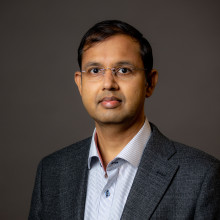
"It's important to me to solve real-world problems"
Prior to his employment at LUT, Bhatnagar worked for the University of Eastern Finland. He sees Finland as a pioneer in water management practices, all due to good governance and legislations, a well-maintained water treatment infrastructure and public awareness.
LUT's expertise and long tradition in water purification and industrial collaboration inspired Bhatnagar to accept an invitation to a professorship. Since joining LUT during summer 2020, he has been building his research team and laboratory facilities in Mikkeli. His team is a part of LUT's Separation Science Department, the largest research unit in Finland dedicated to separation technologies.
"LUT is actively transforming research outcomes into innovative products and technologies. It is very important for me that my research is not limited to laboratory outcomes only, but that it is applied to solve real-world problems associated with global environmental problems."
LUT's research focus on water treatment technologies includes, for instance, adsorption, electrochemical technologies, membrane processes, and advanced oxidation processes. Bhatnagar sees his expertise complementing well the other water purification teams at LUT.
"All these processes have unique advantages, but one single process alone cannot be successful in treating wastewater effectively. The microalgae-based technology can be integrated effectively with other technologies and result in a hybrid technology that can perform exceptionally well."
Microalgae-based water treatment carries potential for both different sectors of industry and residential areas that currently still lack proper infrastructure for wastewater treatment.
"Microalgae-based treatment systems are especially ideal for regions with high temperatures and sunlight exposure. In these systems water can be treated and organic matter, nutrients, and some hazardous contaminants and pathogens can be removed. Nutrients such as nitrogen and phosphorus are the main causes of eutrophication in water bodies," Bhatnagar explains.
More about the topic:
LUT University's climate actions
- 10 steps to cleaner water
- Valuable nutrients that eutrophicate waters could produce food in hunger-stricken areas
- Sustainability Science and Solutions
Sustainable business
Active participant in sustainability discussion
Bhatnagar's group also investigates microalgae solutions for countries where the winters are cold, long and dark, like in Finland.
"We are investigating the potential of local strains of microalgae, which can be suited for cultivation in the Nordic climate with relatively little sunlight and low temperatures."
Bhatnagar is an active participant in sustainability discussion, not only among researchers but also on social media. It's easy to believe him when he says his primary goal is to make a positive societal impact.
"We have to make the transition towards a more sustainable world now. In my field this means closing the water loop and no longer considering wastewater as waste. My target is to develop a sustainable and effective water treatment technology that can be of use even in poor countries."
The recruitment process for a junior researcher in Bhatnagar's group proved that these targets are widely shared.
"We received almost 250 applications for one single junior researcher position! The applicants are from all over the world, and many of them from countries where clean water is not available to all. Going through so many applications takes time, but of course I'm happy that our field of research and team is appealing," Bhatnagar ends with a smile.
Amit Bhatnagar
Who: Amit Bhatnagar, (45 years), married to Eva Kumar, who works at the Finnish Institute for Health and Welfare
Education: PhD from Indian Institute of Technology (IIT), Roorkee, India (2003)
Career & research positions:
Full Professor at LUT since August 2020.
Assistant, Associate and Full Professor positions, University of Eastern Finland (2014–2019)
Postdoctoral Researcher, Linnaeus University, Sweden (2012–2014)
Postdoctoral Researcher, University of Porto, Portugal (2010–2012)
Erasmus Mundus Postdoctoral Researcher at TUHH, Germany (2009–2010)
Marie Curie More Experienced Researcher, University of Kuopio (2009,
BK-21 Postdoctoral Researcher, Yonsei University, South Korea (2006–2009)
Postdoctoral Researcher, Central Building Research Institute, India (2006)
Postdoctoral Researcher, EAWAG, Switzerland (2004)
What motivates me as a scientist: Curiosity to learn something new which I did not know until now
Motto: "If you fail, never give up because fail means the First Attempt In Learning" (Dr. APJ Abdul Kalam, Former Indian President)
